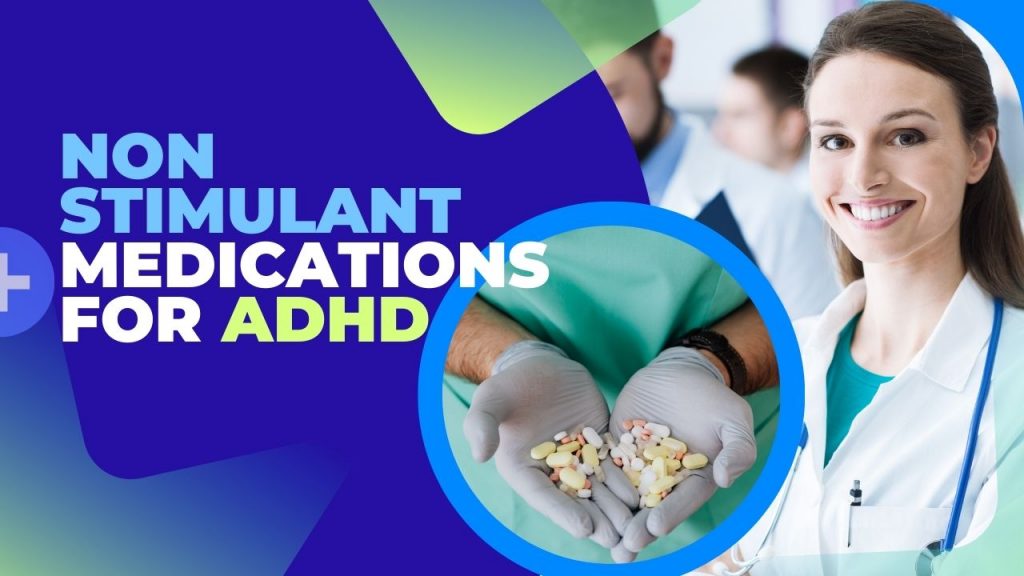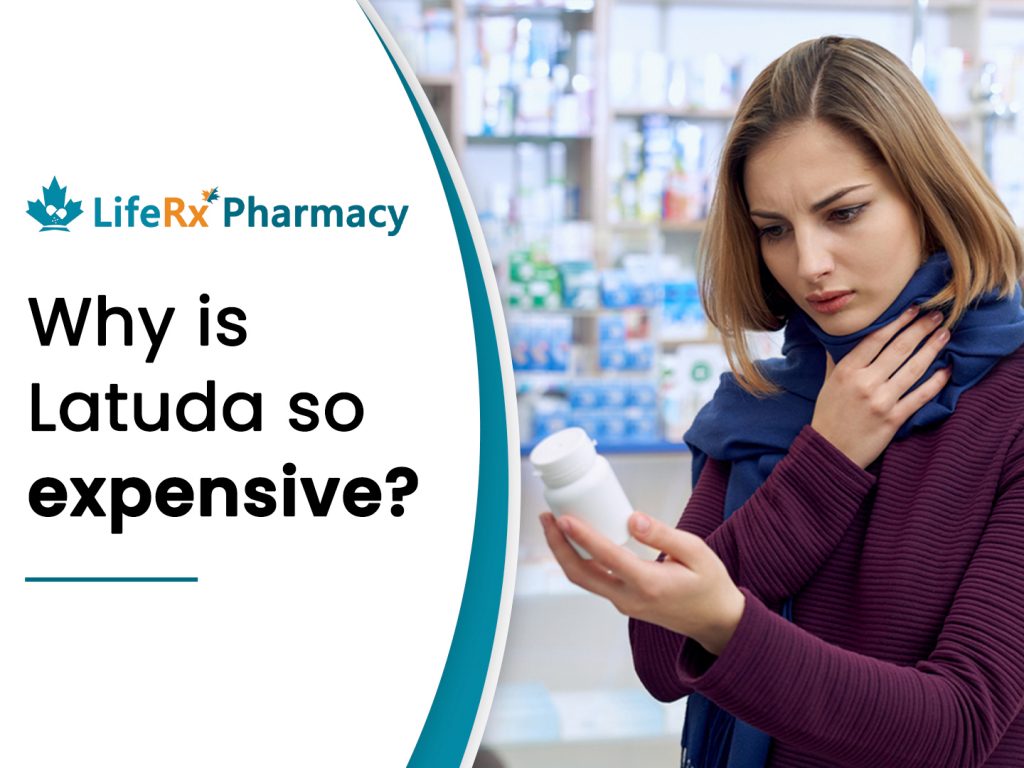When it comes to being criticized, misidentified, or misunderstood, people with Attention Deficit Hyperactivity Disorder (ADHD) need to be tough and resilient. Given that this neurodevelopmental illness can have a lot of negative implications, an effective awareness, and information and through various stimulants and Non stimulant medications for ADHD can significantly alter public perceptions and provide the best treatments of ADHD.
The stimulant medications are typically the first line (or most recommended) of treatment for kids with ADHD. But, what is ADHD?
One of the most prevalent neurodevelopmental diseases in children is ADHD. It frequently persists into maturity and is typically first diagnosed in infancy. Children with ADHD may struggle to focus, manage impulsive behaviors (doing without considering the consequences), or be extremely active. The effects of stimulant-based drugs have been investigated for more than 50 years.
Yet there is undeniable proof that they are the best at encouraging children to focus and control impulsivity. Hence, the need for development of Non stimulant medications for ADHD came into existence.
What are symptoms of ADHD?
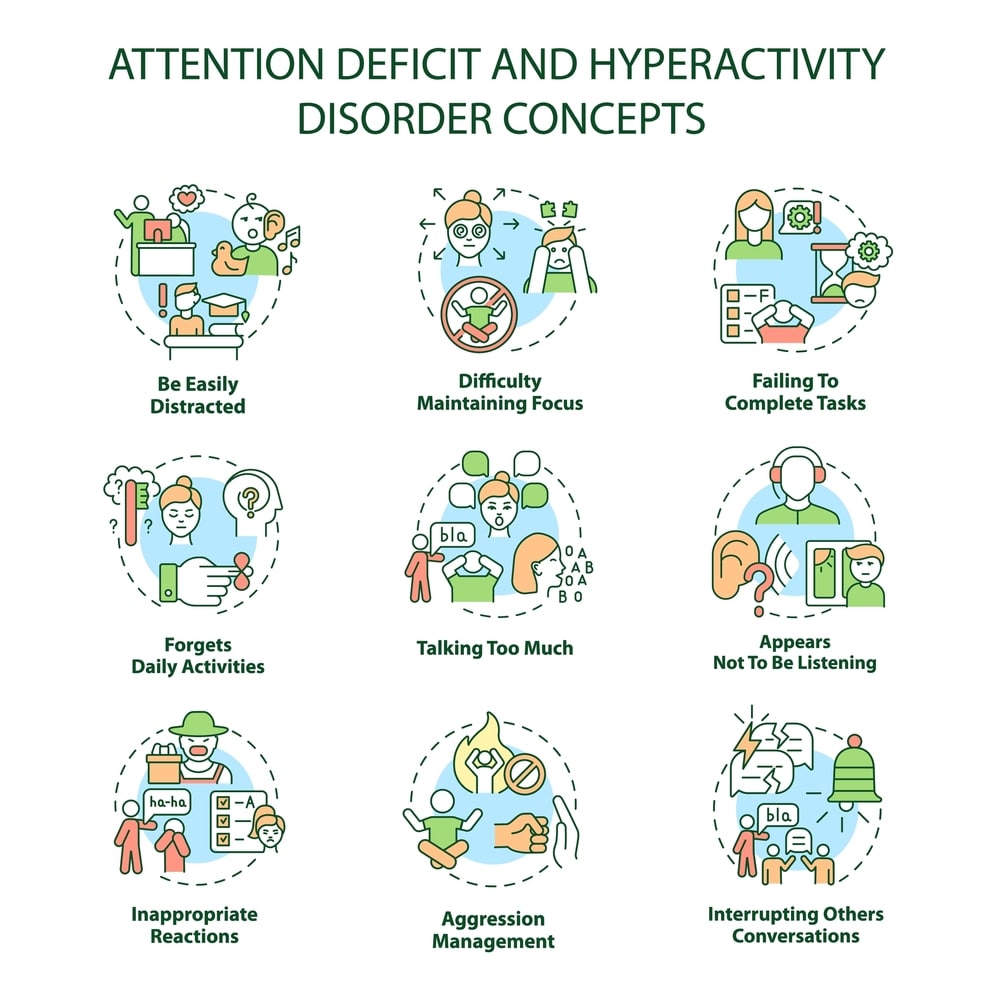
Attention deficit hyperactivity disorder (ADHD) symptoms can be divided into two categories:
- Inattentiveness (difficulty concentrating and focus).
- Impulsivity and overactivity.
Children’s and teenagers’ symptoms:
Children and teenagers with ADHD typically exhibit well-defined symptoms that become apparent before the age of six. These happen in multiple settings, like at home and at school.
The primary indicators of inattentiveness are:
- Having a short attention span and being easily distracted.
- Making casual mistakes, such as in schooling.
- Being unable to stay with hard or time-consuming chores.
- Appearing to be unable to listen to or follow directions.
- Having difficulties organizing tasks.
The primary indicators of impulsivity and overactivity are:
- Being unable to remain motionless, particularly in tranquil or quiet environments.
- Difficult to focus on activities due to frequent fidgeting.
- Chatting and moving around too much.
- Not being able to wait their turn, behaving hastily, and interfering with conversations.
- No or little awareness of risk.
Symptoms in adults:
- Irresponsibility and disregard for details
- Never finishing old jobs before commencing new ones
- Lack of organization
- Difficulty to prioritize or concentrate
- Constantly misplacing or missing stuff
- Forgetfulness
- Jitteriness and restlessness
To manage these symptoms of ADHD, there are medications to help, thankfully. Moreover, Non stimulant medications for ADHD have proven to be better than stimulants medications. Drugs that act as stimulants function by sending more neurotransmitters like dopamine, norepinephrine, and serotonin to the brain and preventing their breakdown.
Non stimulant drugs can influence comparable neurotransmitters via reducing brain degeneration. Several Non stimulant drugs are used to treat ADHD off-label and have been found to be successful in treating some ADHD patients.
Causes of ADHD:
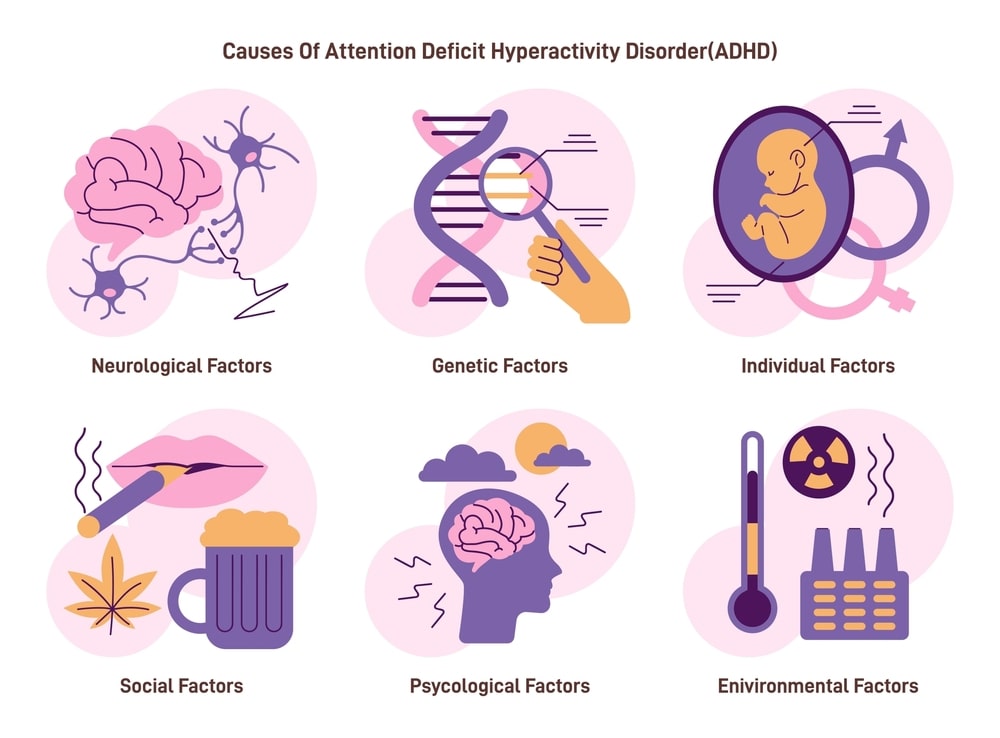
- Genes: In most cases, it’s believed that the genes you acquire from your parents play a key role in developing the disorder because ADHD tends to run in families. Research indicates that those with ADHD are more likely to have parents or siblings who also suffer from the condition. However, the inheritance pattern for ADHD is probably complex and is not assumed to be due to a single genetic defect.
- Brain functioning and structure: According to research using brain scans, some brain regions may be smaller and others may be larger in individuals with ADHD. Some research has hypothesized that neurotransmitters may be out of balance in the brains of persons with ADHD or may not function properly.
- High-risk groups: Several individuals are thought to be at higher risk for ADHD, including: who experienced brain damage during pregnancy or as a result of a severe head injury later in life, were born prematurely (before the 37th week of pregnancy), had low birth weight, epilepsy, or both.
- Brain Anatomy: ADHD may be accompanied by a decrease in activity in the regions of the brain that regulate attention and level of activity.
- Head Injuries: Trauma during childhood or developing stages can lead to ADHD.
- ADHD is more likely to develop in premature children.
- Alcohol and Nicotine from smoking during pregnancy are two prenatal exposures that raise the risk of ADHD.
- Toxins in the environment may, in very rare instances, cause ADHD. For instance, lead in the body might impact a child’s behavior and development.
Advantages of Non Stimulant medications for ADHD over Stimulants:
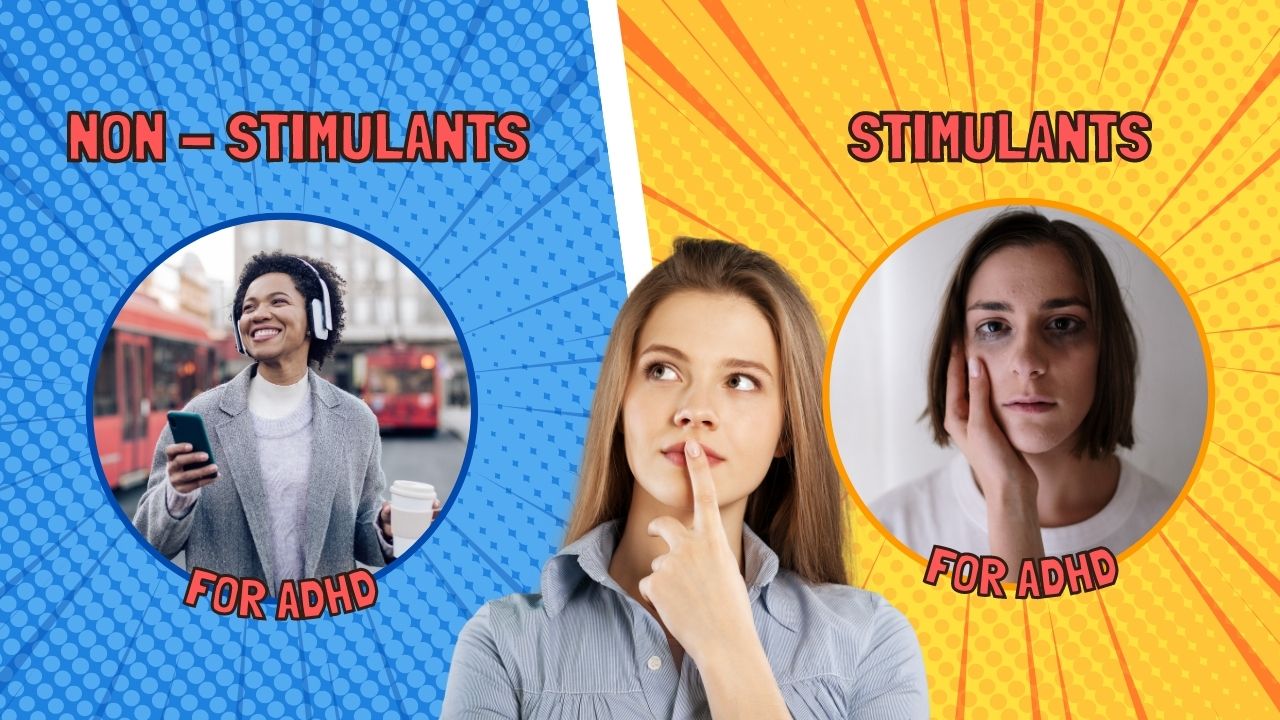
- Antidepressants and previously used hypertension drugs are examples of non-stimulant treatments for ADHD. They are often prescribed for ADHD when patients cannot take stimulant drugs or when such medications have not been effective. By preventing their reuptake, they aim to raise the levels of neurotransmitters in the brain.
- The same symptoms that are treated with stimulant medicines are treated with non-stimulant meds. The way they handle such symptoms, however, is where the difference lies. While the majority of patients will respond to stimulant medicine, some patients may respond better to non-stimulants. These medications are not one size fits all. Three non stimulant medications for ADHD have been given the FDA’s approval for use in teenagers. They include Guanfacine, Clonidine, Wellbutrin SR or Wellbutrin XL, Viloxazine, and Atomoxetine.
- Those who are using other antidepressants or anti-anxiety meds shouldn’t take non-stimulant drugs like atomoxetine because these non-stimulants will do the work of antidepressants or anti-anxiety meds and one should not require to take extra medications. Hence, it reduces the need for extra drugs in this case.
- The main advantage of utilizing non stimulant medications for ADHD is that since they are not restricted substances, there is no risk of drug abuse associated with their use. They are also a fantastic option for the 10–30% of ADHD individuals who do not react to stimulant drugs.
- Serotonin syndrome, stimulant overdose, and cardiac adverse effects of stimulants are all life-threatening concerns to be aware of, especially when using antidepressants. They all arrive with a pounding heart, elevated blood pressure, perspiration, trembling, anxiousness, and trembling. Meanwhile, non-stimulants drugs does not cause these symptoms hence providing advantage over stimulant drugs.
- Your doctor may recommend a non-stimulant drug over a stimulant for a variety of reasons, such as failure of stimulant therapy or low likelihood of substance abuse. Any unacceptable stimulant medication side effects, or the possibility that your current medications will interact with one another.
- Non stimulant medications for ADHD (any medication) your physician chooses to take, it is also advised that patients attend therapy as part of their treatment plan, such as Behavioral management therapy for ADHD. Finding a neurodiversity therapist who can work with patients to identify their unique talents may be beneficial for patients as non-stimulants and therapy together provides a synergistic effect and helps in better healing than stimulants drugs.
- Non-stimulants don’t frequently result in agitation, insomnia, or decreased appetite. Also, they don’t carry the same danger of abuse or addiction. Also, they have a more enduring and gradual effect than many stimulants, which can start working and then stop quickly.
- Take your medication exactly as directed if you and your doctor feel non-stimulants medications for ADHD are best for you. To ensure that the medication is working as intended and is not causing you any difficulties, your doctor may every so often order some lab tests. As in stimulants drugs, Height and weight checks at the pediatrician’s office should be used to closely monitor growth limitation and appetite suppression in youngsters. Women may experience menstrual-related side effects or pregnancy-related issues. These test are often carried out to check the effectiveness of the medication but non-stimulants does not possess these threats.
What are some Non Stimulant medications for ADHD?
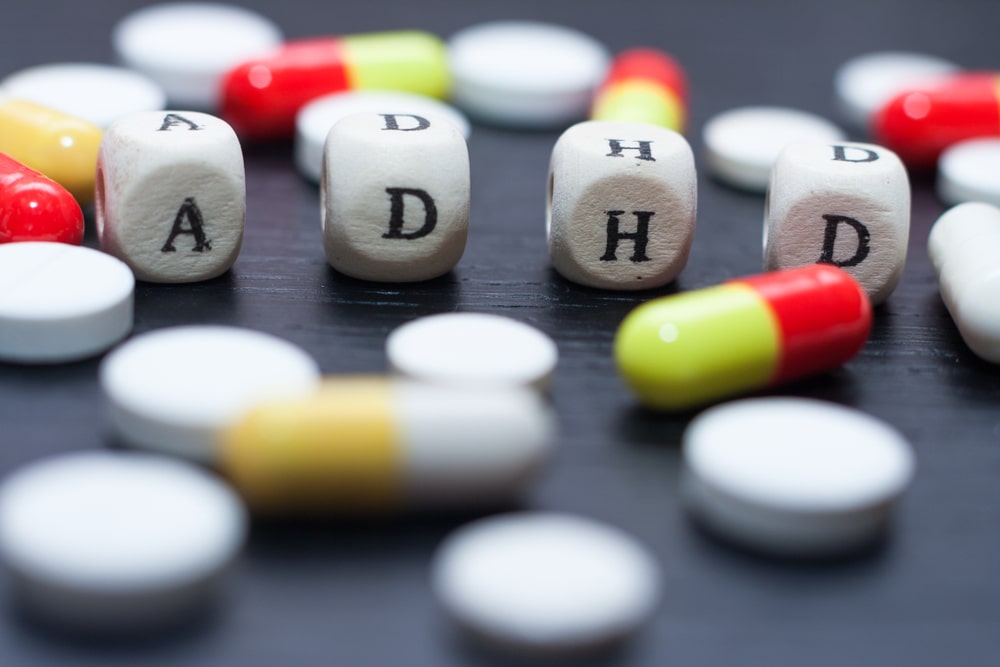
Norepinephrine modulators include Atomoxetine (Strattera), the most used non-stimulant drug, and a recent drug named Viloxazine (Qelbree). Clonidine (Catapres, Kapvay) and guanfacine (Tenex, Intuniv), the other two nonstimulant drugs for ADHD, are alpha agonists.
Non Stimulant medications for ADHD:
Children:
- Strattera (Atomoxetine): the 1st non stimulant medications for ADHD.
- Guanfacine: Timed-release medication.
- Clonidine: Extended-release alpha agonist medication.
- Qelbree: contains serotonin.
- Wellbutrin, Effexor-XR, etc.
Adults:
Atomoxetine (Strattera) is an alternative to stimulants if those aren’t an option. The first non-stimulant medication specifically for ADHD was this one. Although the full benefits don’t begin to manifest as quickly as with stimulants, some people find that it is effective for them.
How does Non stimulant medications for ADHD work?
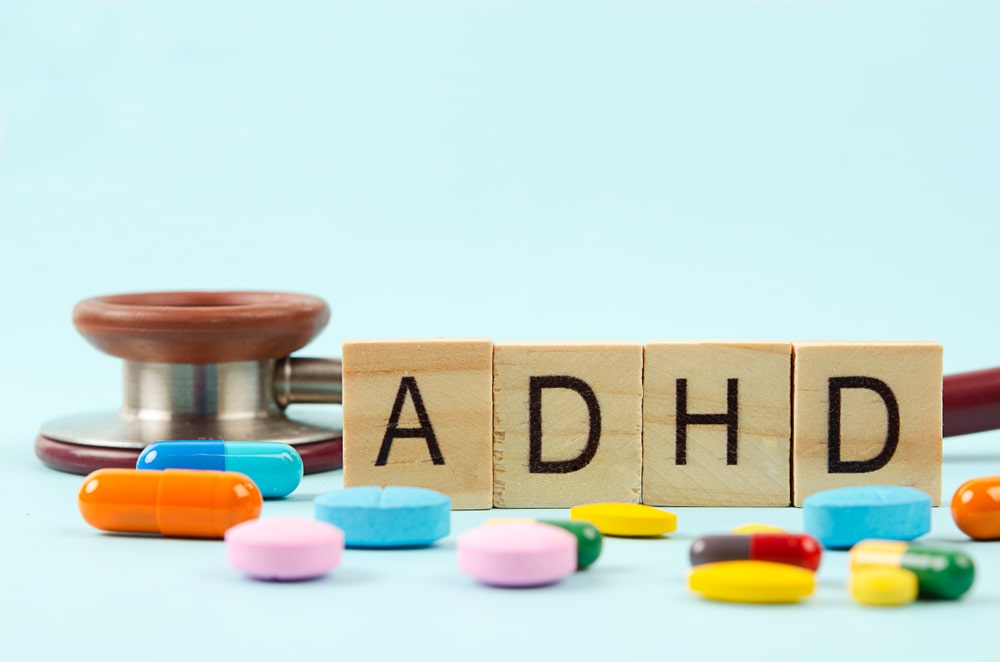
- Non Stimulant medications for ADHD target norepinephrine, a separate neurotransmitter that is involved in executive function. Kids who can better control their emotions are better able to begin and finish tasks.
- Non-stimulants ADHD medications work similarly to selective serotonin reuptake inhibitors (SSRIs), which treat depression. The three main signs of ADHD—hyperactivity, inattention, and impulsivity—can be alleviated by doing this.
- This also works by relaxing the blood capillaries and vessels in turn reducing the blood pressure.
- Depending on the type, different techniques of working with ADHD drugs. Certain neurotransmitter levels can be increased to alleviate ADHD symptoms lengthening the attention span, decreasing hyperactivity, managing impulsive actions, and the control of executive dysfunction, etc.
What your doctor needs to know?

Tell your doctor about all of the drugs you or your kid are taking, whether they are prescribed or over-the-counter. Moreover, let your doctor know if you take any supplements or drink any coffee (and the amount per day). Mixing some drugs might be detrimental to the health.
To find the right prescription and dosage for you or your kid, your healthcare provider may need to experiment with several drugs and dosages. Your healthcare practitioner will monitor you or your child and change the medication’s dosage as necessary to strike the ideal balance between its advantages and disadvantages.
All this information and thoughts converge to this question- Are non stimulant medications for ADHD safe?
Non-Stimulant ADHD Medicine with FDA Approval: The U.S. Food and Drug Administration (FDA) has authorized the non-stimulant ADHD drugs as effective, safe therapies for the symptoms of attention deficit hyperactivity disorder.
Drug Overdosing:
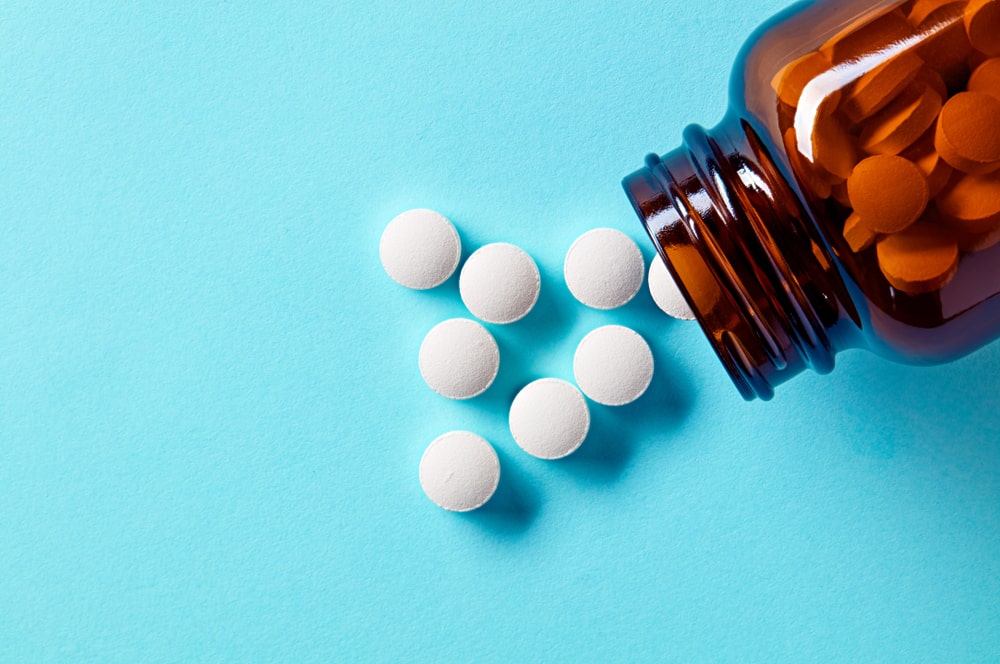
The effects of an overdose vary depending on the precise substance, the dosage, if the person took their own medicine, and whether they also took any additional medications. If a toddler accidentally takes his own low-dose medication twice, he/she may not require medical attention.
On the other hand, a double dose can be excessive if the tablets have a lot of medication in them. The same holds true for kids who consume their sibling’s medication. Sometimes a single low-dosage pill can suffice, while a bigger dose may necessitate medical attention.
Any intentional overdose necessitates immediate medical attention. Even if the person looks to be in good health, call 1-800-222-1222 right away to speak with the poison experts.
Final Reflections:
Treatment for ADHD can take many different forms. Various drugs and therapeutic approaches work better on various patients. To find out if a stimulant or non-stimulant medicine is best for you to treat your ADHD, it’s crucial to talk to your doctor.
FAQs:
Are non-stimulant ADHD medications effective?
Yes, they are very effective especially in patients where stimulants medication does not cause much help.
Is there a non-stimulating medication for ADHD in adults?
The FDA has approved the non-stimulant atomoxetine (Strattera) for the treatment of ADHD.
Can I order non stimulant ADHD medication online?
Yes, they are available easily but on physician’s prescription only. Non stimulant medications for ADHD are also available on LifeRx Pharmacy. Check out the website to discover discounts on the medicines.
What is the best non stimulant ADHD medication?
There is no single medication that can be put under the best criteria. Different non-stimulants medications for ADHD are prescribed according to the need. Children between the ages of 6 and 17 are permitted to take clonidine ER (Kapvay), guanfacine ER (Intuniv), and viloxazine (Qelbree).
Does non-stimulant ADHD medication work?
Yes, they are effective in treating ADHD.
Do non-stimulant medications have rebound behaviors?
No, the non stimulant medications for ADHD do not have rebound behaviors. The “rebound effect” or “ADHD medication rebound” is a flare-up of ADHD symptoms once a stimulant prescription wears off.
